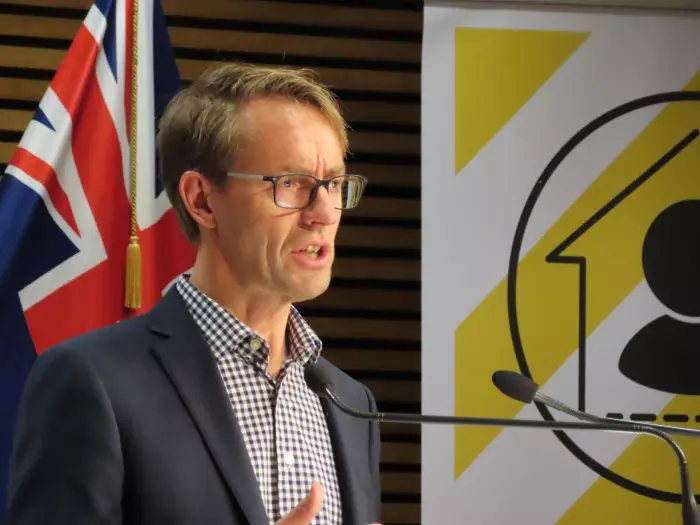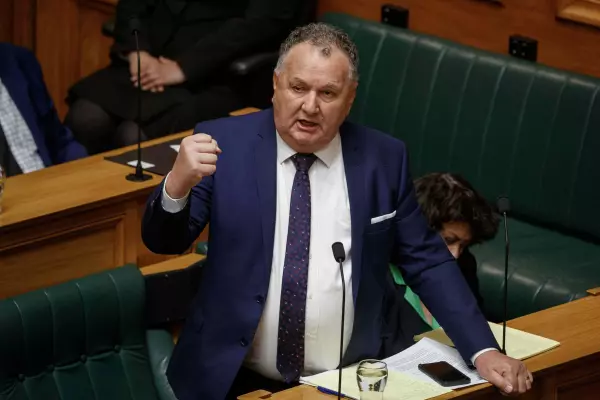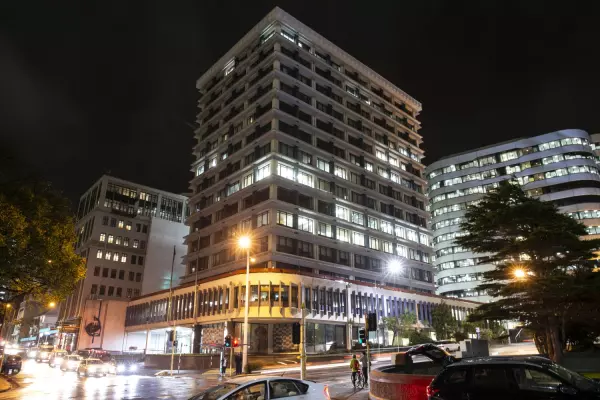The Ministry of Health knows that there has been a second positive case of covid-19 detected in the last three days.
It apparently just felt that a "historic" case on a visiting ship did not merit telling the public.
The new case was found during routine testing of a crew member from a ship who arrived in Tauranga over the weekend. The Port of Tauranga was advised on Sunday, following discovery of a positive case in a crew member on the IVS Merlion, which arrived in New Zealand's largest port on Saturday afternoon.
Emails about the Tauranga discovery were floating around from the Port of Tauranga this morning and the port company commented to BusinessDesk about it.
Yet not a peep from the Ministry of Health at today's regular 1pm briefing.
In fact, today’s daily update statement said: “There are no new cases of COVID-19 to report in New Zealand today – that’s zero at the border, and zero in the community.”
Most New Zealanders could be forgiven for not realising that the new of the word "new" in this context does not rule out the possibility of a "historic" case.
The ministry was also slow to answer questions from BusinessDesk about the case – questions that must be submitted in writing under the protocols the ministry makes journalists adhere to rather than dealt with by a straight, simple verbal answer.
After we published a story on the case, the ministry issued an out-of-cycle press statement late this afternoon.
Why?
Why handle it this way?
There can be no good public health reason for withholding news of a positive covid case.
In fact, there are strong public health and communication reasons why such information should be made public as soon as it is reliably confirmed.
For a start, the discovery is - on the face of it - good news. It shows that testing protocols at the borders are working for the shipping industry, which remains a vital lifeline for the country.
By withholding information about it, health authorities risk the news leaking and being misinterpreted.
After all, the New Zealand public is intensely interested in maintaining the country’s covid-free status.
Anything that threatens that status is clearly in the public interest, and anything that threatens the public’s trust in the ministry’s timely release of information is a danger to the country’s remarkable compliance with the covid elimination strategy.
We don’t want to be like the many other countries where societies are starting to reject covid control measures that are so essential to controlling a pandemic that is getting a second wind in the Northern Hemisphere.
Use the damn app!
Secondly, New Zealanders need to be constantly reminded that the covid threat is far from over.
We want to maintain the conditions that allowed a mask-free general election and an international rugby test match to be watched by a near-capacity crowd last weekend.
But we are already abandoning the habits that give us our best chance of staying this way.
As the graphic below shows, it is less than a fortnight since Auckland moved back to alert level 1, but daily use of the Covid Tracer app has plummeted.
Yet starting to use the app after a new outbreak is confirmed is too late to trace contacts in the past.
Health authorities may argue that there’s a chain of communication that starts with a positive test in a lab, which has to make its way to the local district health board, then to the ministry, and that only then should new information be released, just once a day.
Of course there must be rules about how information is released.
But today’s example suggests those rules have created an alert system for a very contagious virus that is so slow that the ministry ends up in situations like today's - saying there are no cases when in fact there is known to be one.
It also follows acknowledgement that the Minister of Health, Chris Hipkins, became aware of the Taranaki case just after 6pm last Saturday evening, just before voting stations for the general election closed. That, too, was only made public on Sunday, at the regular 1pm briefing.
Questioning these decisions may seem to be requiring the ministry to uphold a very high bar. But the communication on covid is a vital weapon in the elimination strategy. There is no room for complacency or cuteness.
The Ministry of Health needs to reassure New Zealanders that this is a systems issue, and not evidence that information is being manipulated to fit communications considerations that go beyond a simple concern for public trust and safety.
This article was updated on Oct 19 to include reference to the timing of disclosure of the Port Taranaki covid case.














